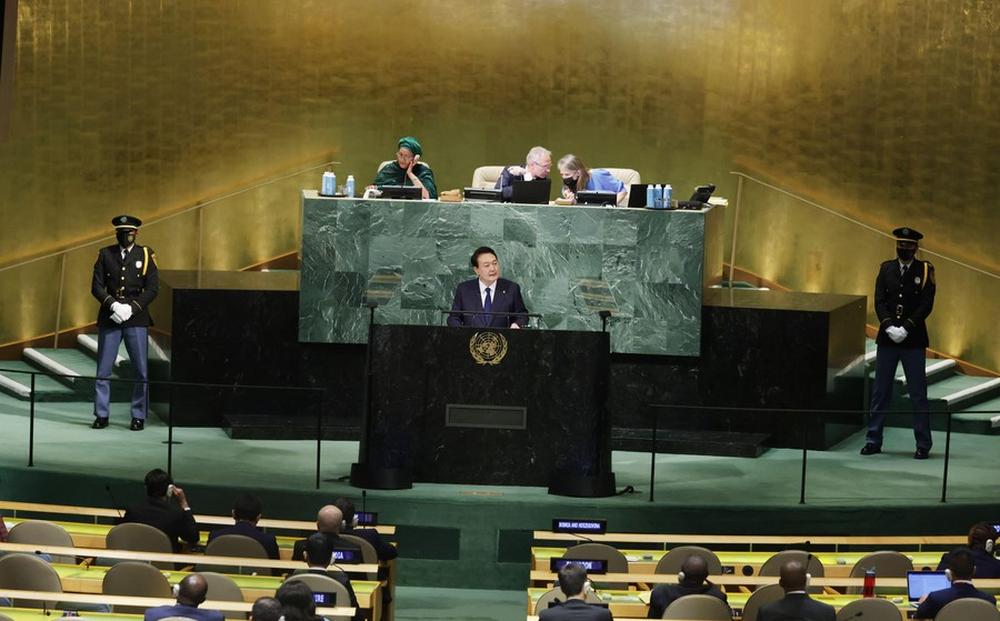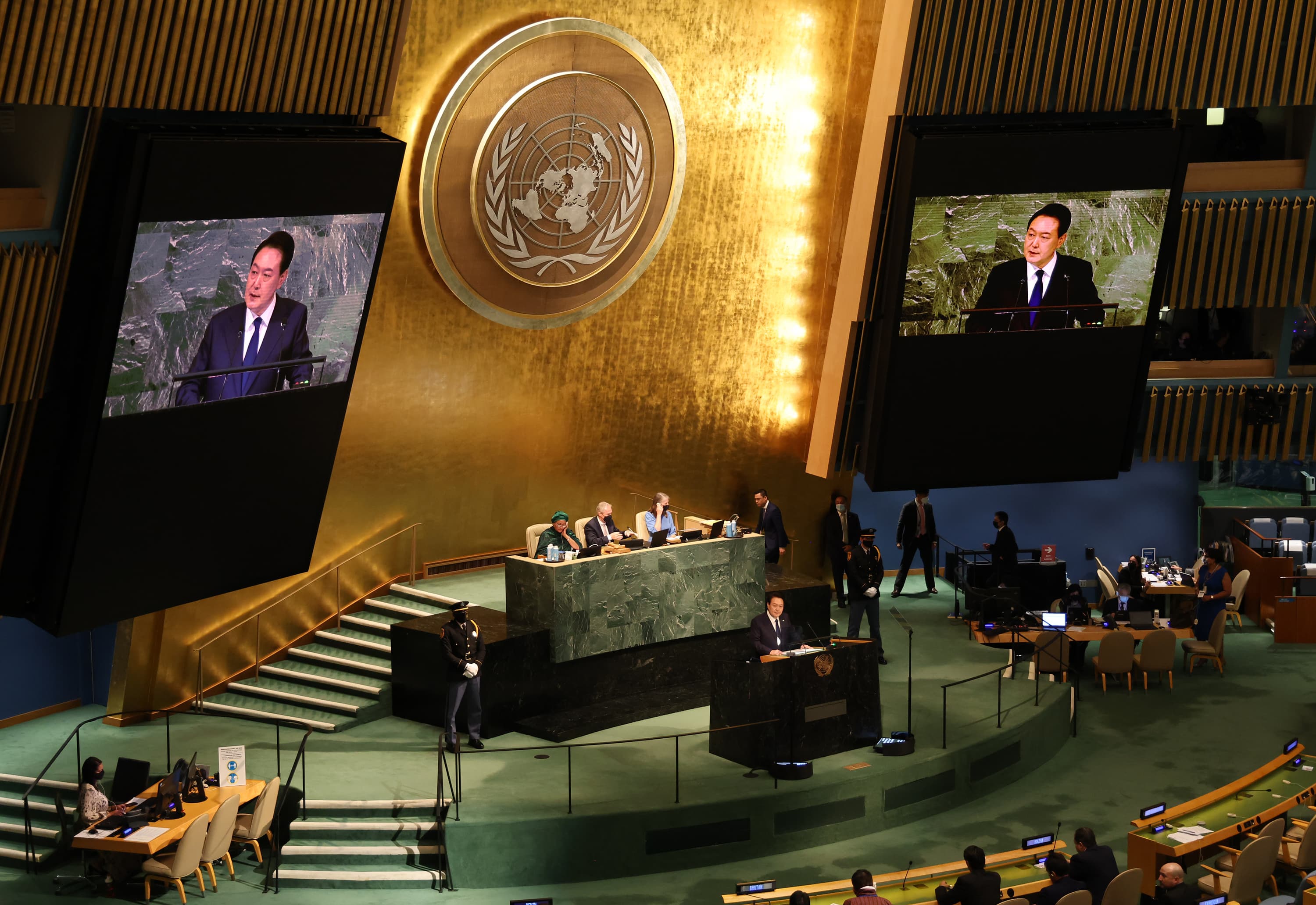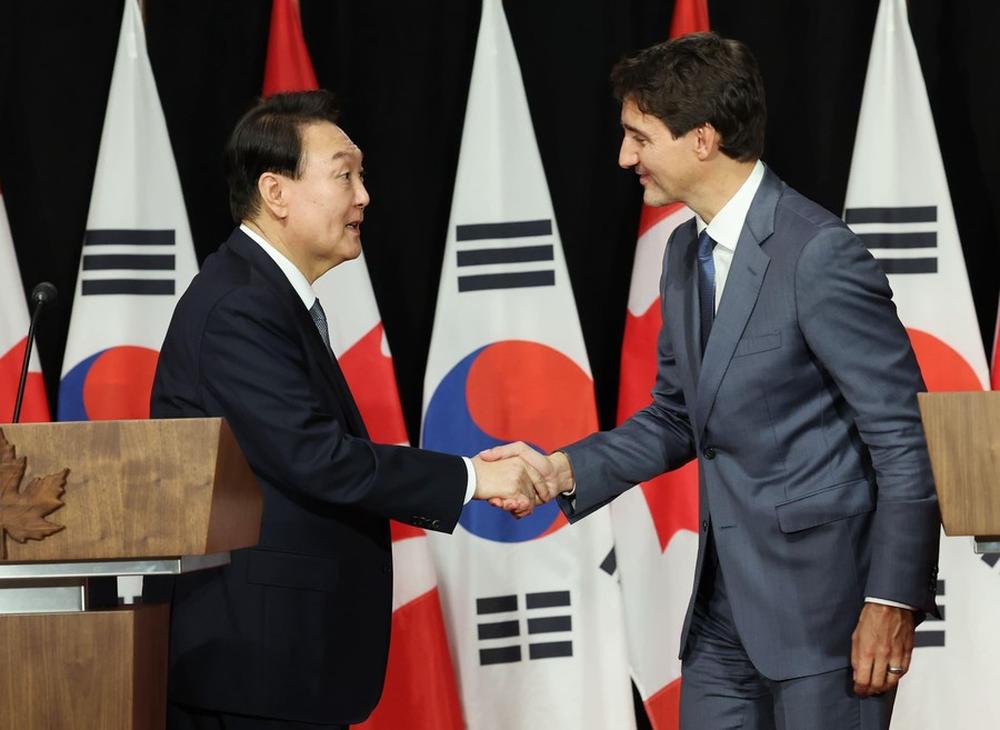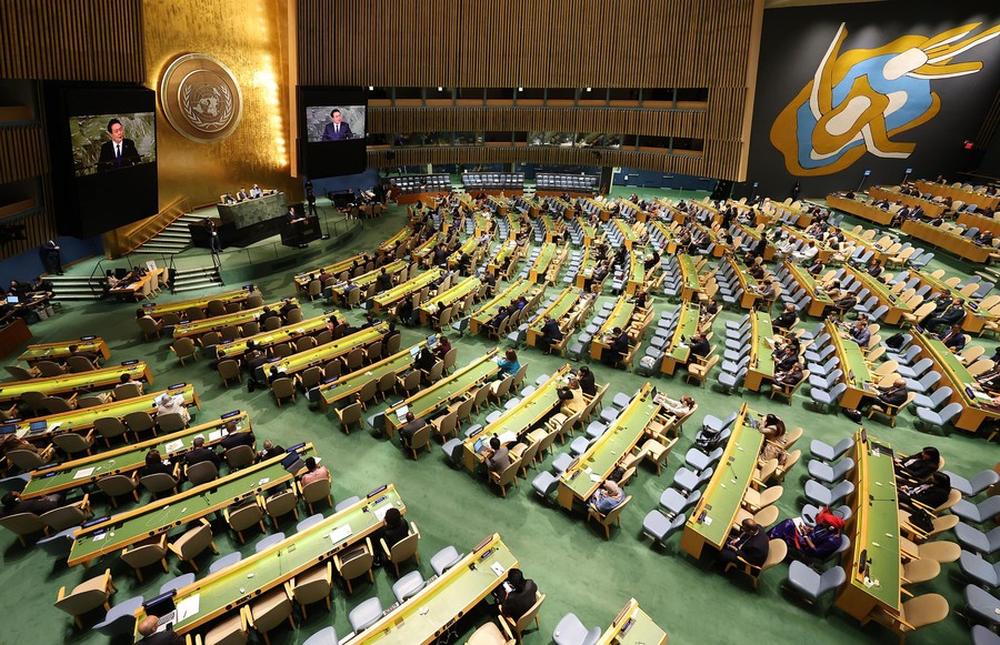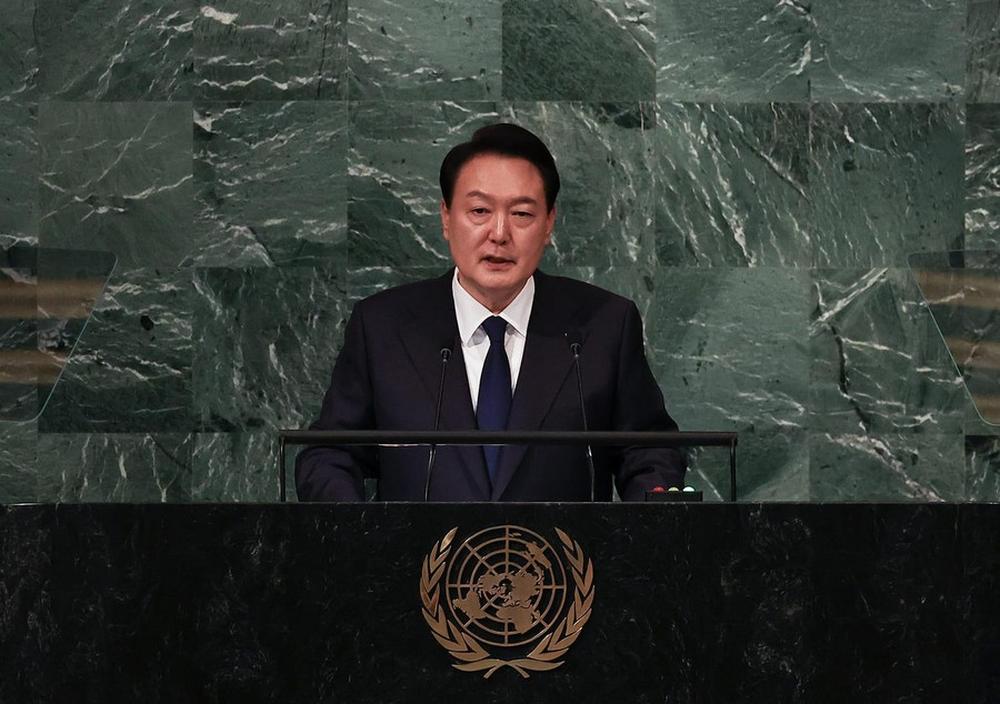- #Global Issues
- #South Korea
- #US Foreign Policy
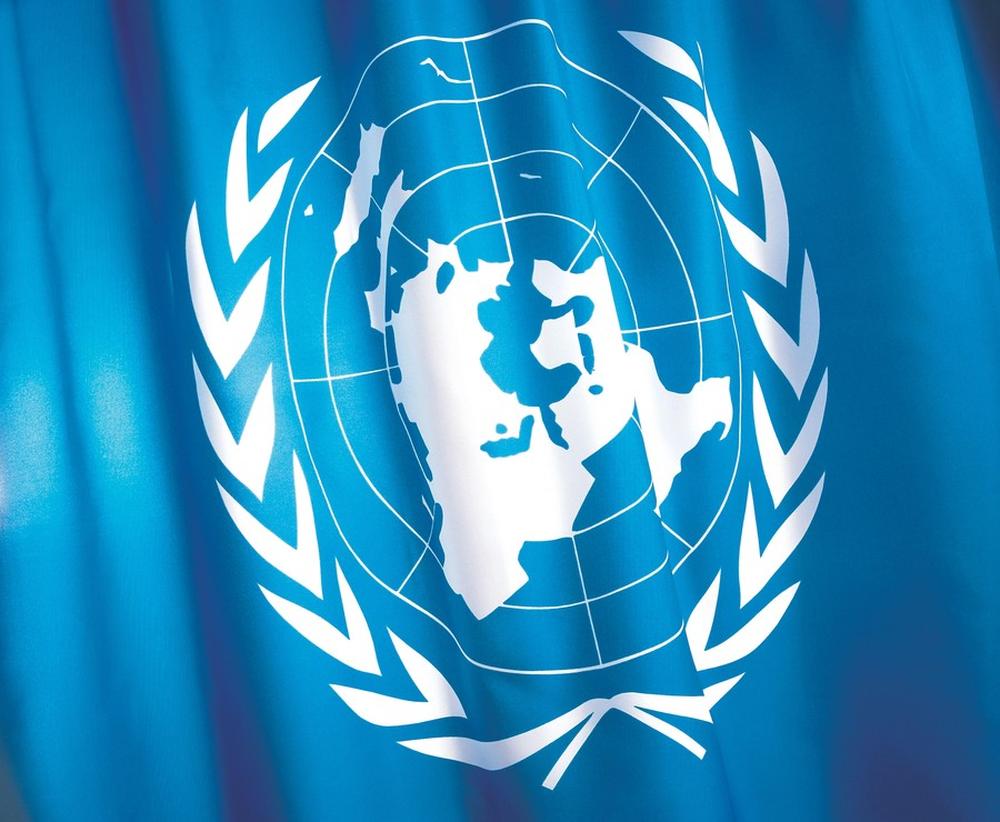
► On September 20, Republic of Korea (Korea) President Yoon Suk Yeol delivered his first address to the United Nations General Assembly, as his predecessors have done for decades. As has been widely discussed and scrutinized, President Yoon’s speech omitted any direct reference to the Democratic People’s Republic of Korea (DPRK).
► Whatever the aim, the decision was intentional and completely consistent with Yoon’s foreign policy direction so far – that is, Korea is, and should continue to be a significant and valuable member of the international community of nations and has much to contribute to the world – irrespective of the DPRK nuclear issue and Pyongyang’s threatening actions.
On September 20, Republic of Korea (Korea) President Yoon Suk Yeol delivered his first address to the United Nations General Assembly, as his predecessors have done for decades. As has been widely discussed and scrutinized, President Yoon’s speech omitted any direct reference to the Democratic People’s Republic of Korea (DPRK). Many were surprised that Yoon did not use the UNGA’s global platform – as his predecessors have done – to call for Pyongyang to return to the negotiating table, denuclearize, or improve inter-Korean relations. When questioned by reporters following the speech on the reasons for the non-mention, Yoon’s staff noted that Yoon’s August 15th Liberation Day speech had fully outlined the Administration’s DPRK policy – or the “Audacious Initiative” – and that there was not more to say on the issue at this time. Some have posited that Yoon’s goal was to send a message to the DPRK – that by not highlighting the DPRK threat, Pyongyang might view the omission as a diplomatic gesture of goodwill that could lead to renewed engagement. Others have called the non-mention a sign of strength, or even disregard with respect to the DPRK. There has been ample speculation and the aim of this article is not to pin down President Yoon’s specific reasons for not mentioning the DPRK. Whatever the aim, the decision was intentional and completely consistent with Yoon’s foreign policy direction so far – that is, Korea is, and should continue to be a significant and valuable member of the international community of nations and has much to contribute to the world – irrespective of the DPRK nuclear issue and Pyongyang’s threatening actions.
Advancing toward a Global Pivotal State
In what seemed like a demonstration of his intention to pivot from the peninsula toward the globe, President Yoon used his speech to highlight the serious challenges the world is facing, with a strong emphasis on the threats to peace and freedom as well as on universal global norms – threats posed by the use of force; the proliferation of nuclear weapons and other weapons of mass destruction; and systematic human rights violations. While he did not name specific countries, these broad references referred to the plight of Ukrainian people who have suffered for nearly eight months under Russia’s invasion and brutal war. However, the reference could also refer to other nations or regions where freedoms and global norms are currently threatened and violated – such as the Uyghurs in China, riots in Iran over the death of Mahsa Amini, and presumably, the DPRK’s nuclear programs and deplorable human rights record, among other oppressive situations around the world.
Yoon’s call for solidarity and commitment among UN member nations to answer these challenges by working to preserve freedoms and the framework of global norms that have governed for decades echoes the overall foreign policy approach encapsulated in his Global Pivotal State concept, first mentioned in his presidential campaign and further explained after Yoon took office in May. In short, the concept focuses on promoting freedom, peace, and prosperity based on the ROK’s liberal democratic values and on cooperation. While some have criticized this concept, calling it a repeat of Former President Lee Myung-bak’s Global Korea policy, it is more accurate to say that the concept seeks to build on, and advance Lee’s vision of a Korea that is more engaged in, and leading the international community on matters of global importance. Lee’s successors continued to pursue policies that sought to advance and elevate the ROK’s global standing—and in many ways, they succeeded – the hosting of the Nuclear Security Summit during fellow conservative, former president Park Geun Hye’s truncated administration, and the Pyeongchang Olympics and the ROK’s participation in the 2020 and 2021 G7 Summits that occurred during progressive President Moon Jae-in’s term are just a few examples. Korea has been on a trajectory of increasing relevance on the global stage; the Global Pivotal State concept aims to further this objective through new and farther-reaching actions that will support these goals. And in the five months since taking office, the Yoon government has taken steps to implement this globe-focused policy – in June, his attendance at the NATO Summit was the first for a Korean president, which was welcomed as having “historical significance for NATO” by NATO Secretary General Jens Stoltenberg. In addition, the administration’s commitment to develop and implement a robust new Indo-Pacific policy, supportive comments on Taiwan, heartier stance on China, and efforts aimed at mending fences with Japan are other examples that demonstrate the administration’s foreign policy is focused on advancing Korea’s relevance and role on the global stage.
In this vein, President Yoon used his UNGA address to highlight Korea’s work in several key areas that Yoon suggested should be priorities for the UN because of their impact on defending “genuine freedom,” which he defined as not just being physically free, but to have opportunities to live a full life with dignity; and advancing “genuine peace,” which he defined as not just the absence of war, but of conflict that would constrain progress for humanity (paraphrased). With respect to fighting disease, hunger, and illiteracy around the world, Yoon noted that his administration has increased overseas development assistance (ODA) to assist vulnerable nations. On climate change issues, Yoon noted that Korea would increase funding for ODA focused on assisting developing countries to achieve low-carbon solutions and that Korea would share its innovative green technologies with the world. Yoon also asserted that bridging the “digital divide which exacerbates polarization among nations” should also be a priority for the UN, and pledged that Korea would share to continue to share its advanced digital technology with the world to assist with this mission. On an issue where Korea has led in the past, global health – with COVID-19 response now folded into that category, Yoon laid out a number of actions his administration is taking to fund therapeutics and vaccines for COVID, as well as hosting a Global Health Security Agenda ministerial meeting in November. By focusing on global challenges and Korea’s efforts to provide solutions, Yoon’s speech highlights to the global community that it has the capacity to reach far beyond the Korean Peninsula.
Pyongyang Has a Say
Yoon’s desire to prioritize advancing his vision for Korea to become a Global Pivotal State will be challenged by the DPRK’s determination to continue expanding and advancing its nuclear and missile programs, as well as by Pyongyang’s apparent resolve to test the Yoon administration’s efforts to shore up the U.S.-ROK alliance and to strengthen Korea’s military posture. The October 4 launch of a DPRK intermediate-range ballistic missile (IRBM) over the archipelago of Japan is the latest (at the writing of this article) in a year marked by an unprecedented number of missile launches. While the DPRK launched an IRBM in January of this year, the October 4 launch was the first time in roughly five years that a DPRK missile has overflown Japan – almost certainly in response to a US-ROK-Japan anti-submarine drill conducted at the end of September. In addition to signaling displeasure over this and other recent exercises, Pyongyang is likely to continue to increase pressure through additional and potentially more advanced weapons testing in an effort to incite fear and spur opposition to Yoon among the domestic audience in the ROK, and now against Prime Minister Kishida Japan as well. Through these actions, Pyongyang has the capacity to distract and derail the Yoon government’s efforts to advance other foreign policy priorities encapsulated in the Global Pivotal State concept. Maintaining resolve to continue to press forward with these foreign policy goals while ensuring that the ROK, along with the United States, Japan, and other likeminded countries are prepared for any DPRK scenario will be key for the Yoon administration’s efforts to implement the actions presented during President Yoon’s address to the UN General Assembly as well as his other foreign policy objectives.
In sum, President Yoon’s omission of references to the DPRK during his address to the UN General Assembly drew criticism from many, but regardless of his reasons, doing so put the Republic of Korea’s contributions to the international community in the spotlight and demonstrated that the challenges presented by of having a threatening neighbor on its northern border does not hinder the ROK’s global role. Yoon’s government has taken a number of steps in the five months since inauguration to advance the objectives of the concept of Global Pivotal State, including by attending the NATO Summit in June, taking a stronger stand on controversial global issues, and leading in areas of international importance, such as COVID 19 pandemic response, global health, and supporting vulnerable populations around the world with increased ODA, as highlighted in his address to the UN General Assembly last month. Yoon’s call for solidarity among UN member states in pushing back against the threats to the framework of universal global norms was an appropriate response to the various challenges to the rules-based international order currently taking place. Although the DPRK is likely to continue to ramp up pressure on Seoul through additional missile and possible nuclear tests, among other threats, Yoon’s resolve to press ahead with his globe-focused foreign policy, while being well-prepared for all possible scenarios is the best way to try to prevent Pyongyang from driving ROK foreign policy. The ROK has already contributed a great deal to the global community, and it is to the world’s benefit that it continues to do so.
Allison Hooker is a foreign policy and national security specialist with 20 years of experience in the U.S. Government working on Asia. Allison served for more than six years on the National Security Council staff, including as Deputy Assistant to the President and Senior Director for Asia, where she led the coordination and implementation of U.S. policy toward the Indo-Pacific region, and coordinated policy approaches with allies and partners in the Indo-Pacific and Europe. Prior to that, Allison served as Special Assistant to the President and Senior Director for the Korean Peninsula, where she focused on U.S. policy toward the Koreas, and staffed the President for all engagements with North and South Korea, including the U.S.-DPRK Summits in Singapore, Hanoi, and the DMZ. Prior to her service at the White House, Allison was a senior analyst for North Korea in the Department of State’s Bureau of Intelligence and Research from 2001 to 2014. In that role, she staffed the Six-Party Talks on North Korea’s nuclear program and provided analytical support to U.S. negotiators. Allison was selected as the 2013-2014 Council on Foreign Relations International Affairs Fellow in South Korea, where she focused on South Korea’s Unification Policy. She received a Masters’ of Arts Degree in International Affairs from the George Washington University, and a Bachelor’s Degree in Political Science and Public Administration from Georgia College and State University. Allison also was a research fellow at Osaka University and Keio University, where she focused on Japan-Korea relations, and Japan-China relations, respectively. Allison is a native of Macon, Georgia.

